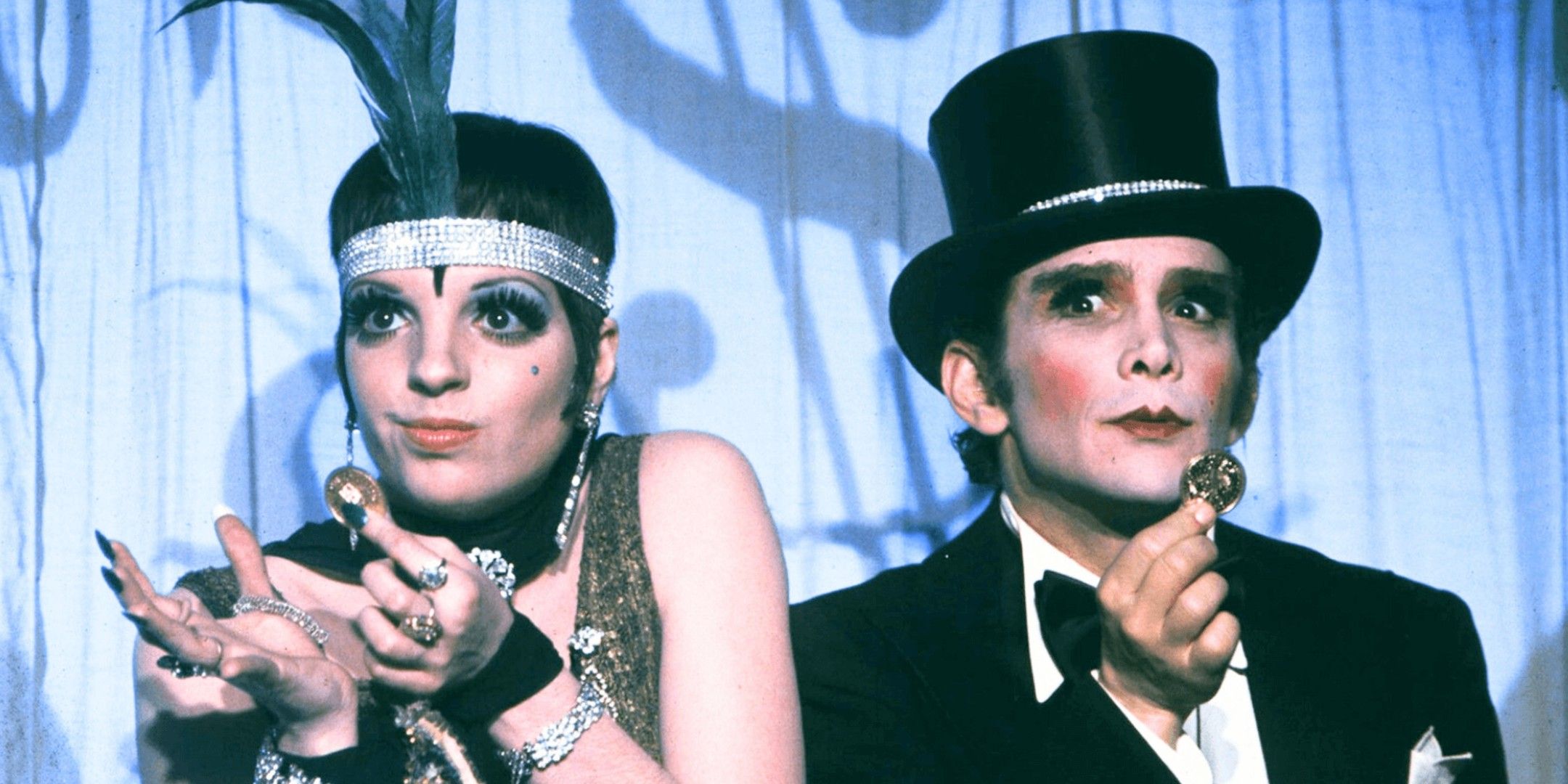
Musicals represent the joyous expression of theater on the big screen, and there are some musical films that will always stand the test of time. As soon as sound movies became common in the early 1930s, eager filmmakers began producing musicals. Though the earliest examples were simple, they brought a new level of entertainment value to the art of film.
As films got more complex, so too did movie musicals. At the height of Hollywood’s Golden Age, musical epics began to dominate the box office. Often pulled from some of the highest-grossing stage shows of the time, movies allowed those popular musicals to be expanded and brought from Broadway to paying audiences all around the world.
Mixing catchy tunes, stunning choreography, and lavish set design, many classic movie musicals were bona fide spectacles that threatened to put even the best stage shows to shame. While the popularity of musicals has faded, it’s not unusual for a musical or two to arrive that reignites fan interest in the genre.
Unlike other types of films, there’s something timeless about movie musicals that keep audiences coming back decades after the fact. Some films continue to find new fans with each successive generation, and have more staying power than their contemporaries. From the past to the present, some musicals will never lose their shine.
10
Chicago (2002)
The Kander & Ebb Classic Brought Musicals Back
Chicago
- Release Date
-
December 10, 2002
- Runtime
-
113 Minutes
- Director
-
Rob Marshall
After a few decades without any significant movie musicals, 2002’s Chicago brought one of the most popular ’70s stage shows to the big screen. Based on the Kander and Ebb musical of the same name, the Richard Gere and Catherine Zeta-Jones vehicle snagged Best Picture at the Oscars, and proved that fans were still interested in the hits.
Chicago‘s Best Picture win was the first for a musical since 1968’s Oliver!
Adapting the lyrical show was no easy feat, and Chicago‘s loose narrative wasn’t a guaranteed success for the movie. However, director Rob Marshall coraled everything with the help of a stellar cast and subtle revamps of the original songs. Chicago is playful and fun, but most importantly, it’s a bombastic spectacle befitting the big screen.
9
Cabaret (1972)
Liza Minnelli Becomes A Superstar
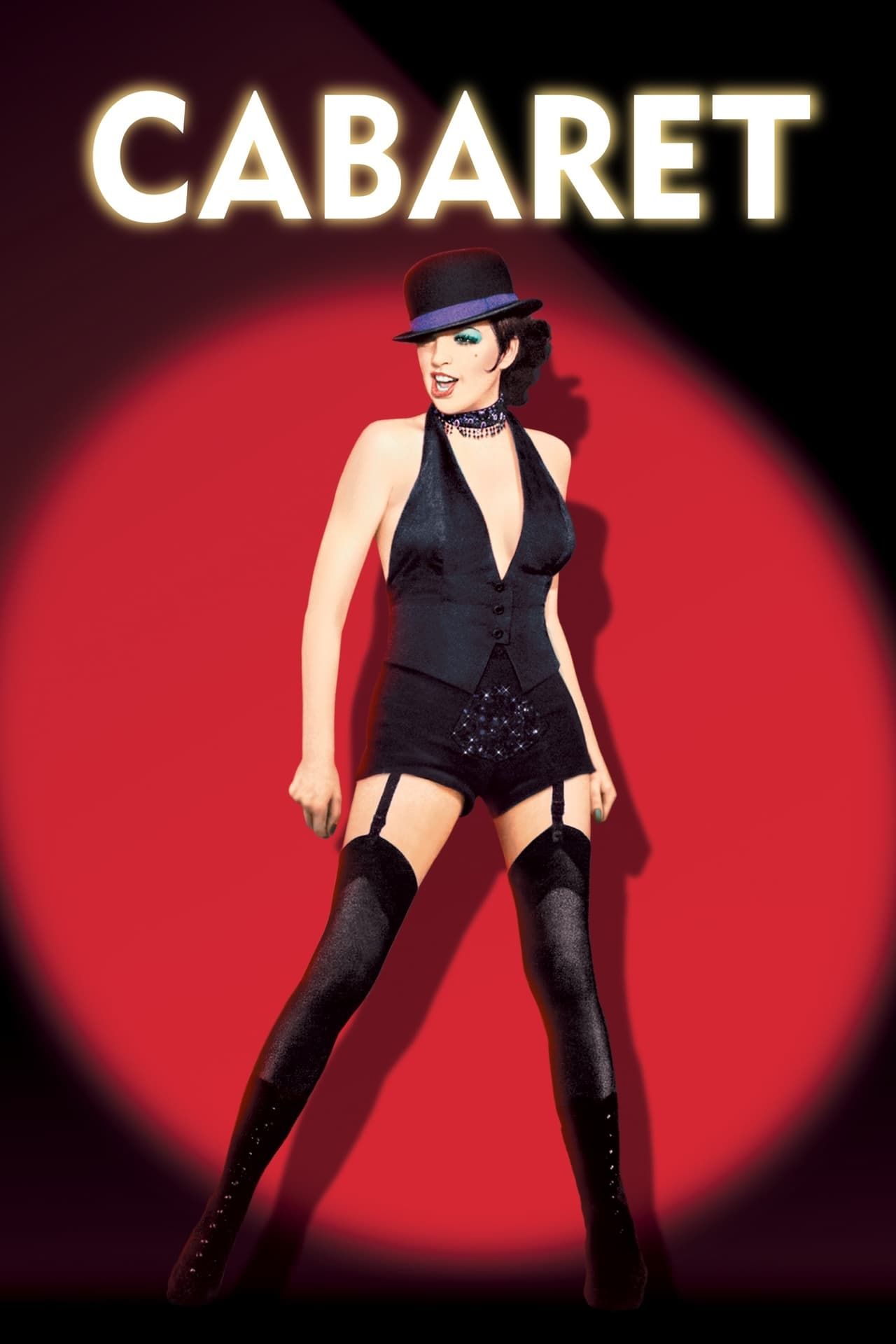
Cabaret
- Release Date
-
February 13, 1972
- Director
-
Bob Fosse
It only took a few years for the Kander and Ebb musical Cabaret to hit the big screen, and it lost none of its impact in the transition. Bob Fosse was tapped to direct the film, and he brought his unique choreography style along with him. Cabaret is both playful and compelling, and the musical is actually quite creepy too.
Cabaret was the swan song for the golden age of movie musicals.
Set against the rise of fascism in Germany in the 1930s, Cabaret was uncharacteristically dark for a musical. Furthermore, the use of almost exclusively diagetic music grounds the film in reality instead of the exaggerated outbursts of song like in other musicals. In a lot of ways, Cabaret was the swan song for the golden age of movie musicals.
8
Little Shop Of Horrors (1986)
The Defining Musical Of The 1980s
Little Shop of Horrors had a long road to the big screen, and it started as a film before becoming a stage show and then a film again. The off-Broadway smash was screaming for an adaptation, and director Frank Oz was the perfect man for the job. Using its doo-wop-inspired score, Little Shop set the tone for modern musicals.
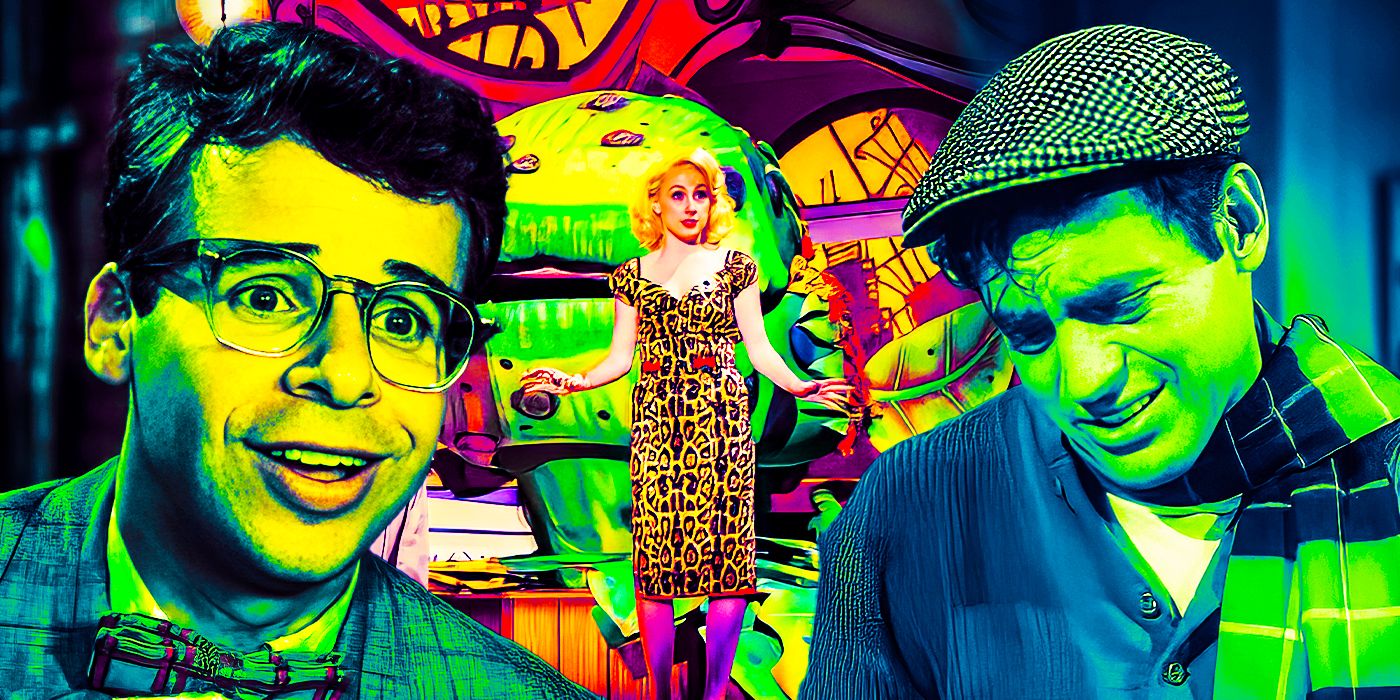
Related
Little Shop Of Horrors Alternate Ending Explained
The 1986 version of Little Shop of Horrors concludes with Audrey II’s defeat, but the film’s alternate ending saw the alien plant take over the world.
Equal parts spooky and silly, the film lampoons musical cliches while embracing many of the same cliches to great effect. The puppet work on Audrey II is masterful, and the cast is jam-packed with nearly every funny person from the decade. Musicals had gotten dour in the ’70s, but Little Shop made them fun again.
7
The Rocky Horror Picture Show (1975)
The Original Midnight Movie
Musicals aren’t usually considered counter-culture, but The Rocky Horror Picture Show smashed any preconceived notions about the genre. The film reassembles many of the cast members from the stage show for one of the wildest rides in cinema history. Melding classic B-movies with modern punk rock fashions, Rocky Horror was born to be a midnight movie.
Songs like “The Time Warp” are deeply ingrained in popular culture, though it still holds its status as the quintessential cult film. Musicals were on the decline in the ’70s, but creator Richard O’Brien saw the potential of the medium to make commentary about conservative society. Though it’s rough around the edges, Rocky Horror is never dull.
6
Grease (1978)
The Nostalgic Musical With Plenty Of Memorable Tunes
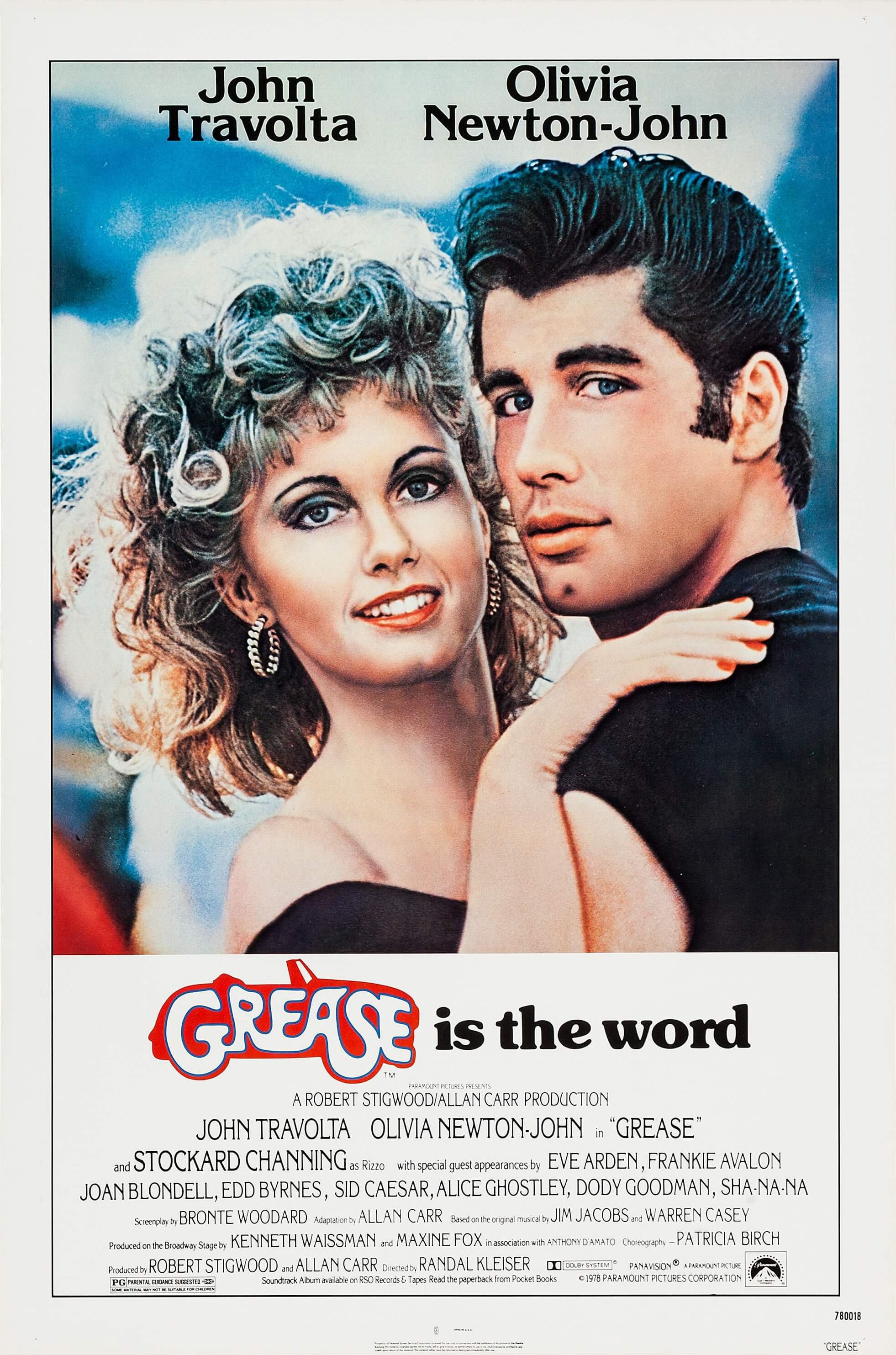
Grease
- Release Date
-
July 7, 1978
- Runtime
-
110 minutes
- Director
-
Randal Kleiser
One of the earliest examples of blatant ’50s nostalgia on full display, Grease sought to bring back the decade but with a few clever twists as well. John Travolta became a household name when he starred alongside Olivia Newton-John in the blockbuster musical, and it helped keep the genre afloat in the ’70s.
Movies are all about escapism, and Grease allows viewers to escape to a time that never really existed, and have some nostalgic fun. The music is the real highlight, and “You’re the One that I Want” has transcended the film, and is still a popular song even outside the context of Grease.
5
The Music Man (1962)
The Music Man Brought Spectacle To The Big Screen
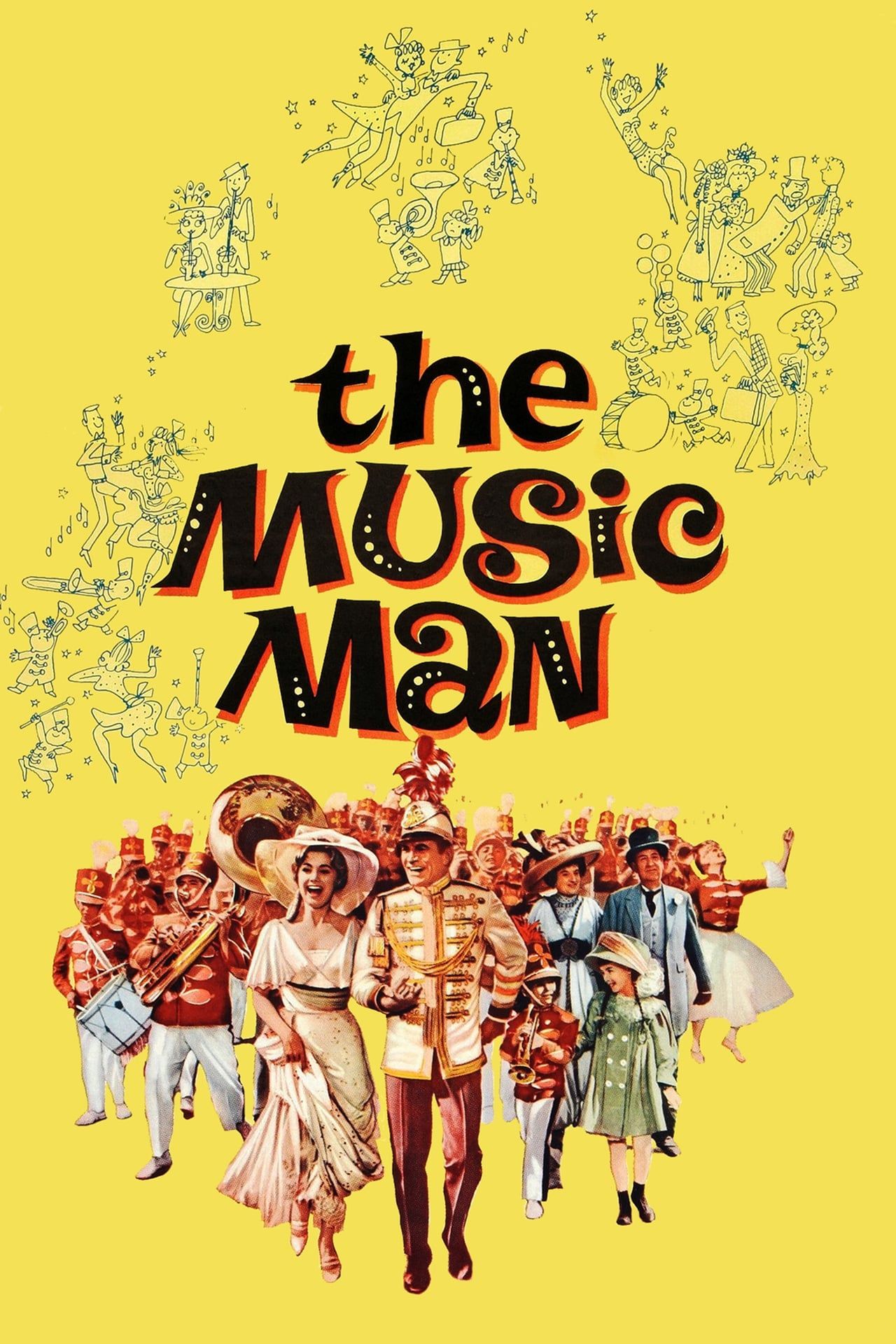
The Music Man
- Release Date
-
June 19, 1962
- Runtime
-
151 minutes
- Director
-
Morton DaCosta
-

Robert Preston
Harold Hill
-

Shirley Jones
Marian Paroo
-

Buddy Hackett
Marcellus Washburn
-

Meredith Wilson’s The Music Man was one of the biggest hits of the 1950s on stage, and it only made sense for a movie adaptation to follow. Robert Preston was brought back to reprise his role as Professor Harold Hill, and the movie adapted the charm of the rakish con-man to the big screen with appropriate gravitas.
The gorgeous color photography has a larger-than-life feel that matches the tone of the story, and there’s an undercurrent of magical realism to the entire film. Unlike other musicals which cut songs, The Music Man preserves the excellent numbers and even enlarges them for the screen. No matter the time of year, The Music Man is the perfect comfort movie.
4
La La Land (2016)
A Modern Musical That Feels Classic
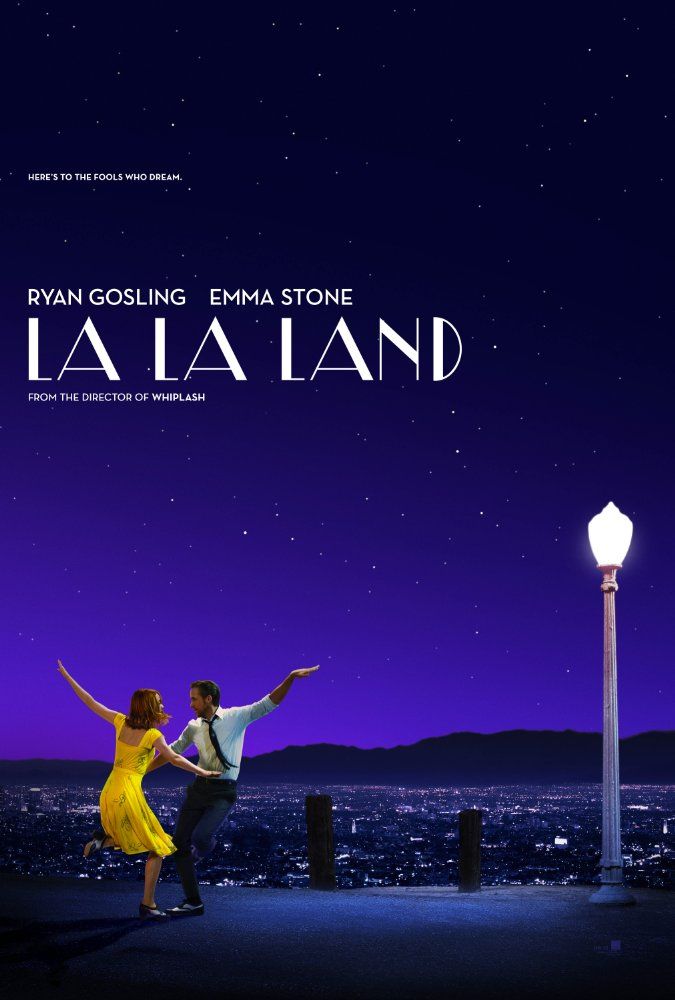
La La Land
- Release Date
-
December 9, 2016
- Runtime
-
128 Minutes
- Director
-
Damien Chazelle
Creating a new musical from scratch is a tough undertaking, and La La Land is the kind of film that almost never gets made in the modern era. Using Los Angeles as the idealized backdrop for its simple story, the film is both a grand extravaganza, and a small-scale character study.
La La Land is a love-letter to its setting and to film in general
Emma Stone and Ryan Gosling are perfect replacements for the Hollywood stars of ages past, and La La Land is a love-letter to its setting and to film in general. It’s almost impossible not to get pulled into the emotion of the story, and the spectacular musical numbers rival even the best work from Broadway.
3
Moulin Rouge! (2001)
Baz Luhrmann’s Epic Jukebox Musical
While most musicals write new music, Moulin Rouge! is perhaps the most famous example of a jukebox musical in cinema history. Using preexisting pop songs, the movie has an intentionally anachronistic tone that juxtaposes the early 20th century with 21st century style. It’s also made with Baz Luhrmann’s bombastic style, a perfect choice for a movie musical.
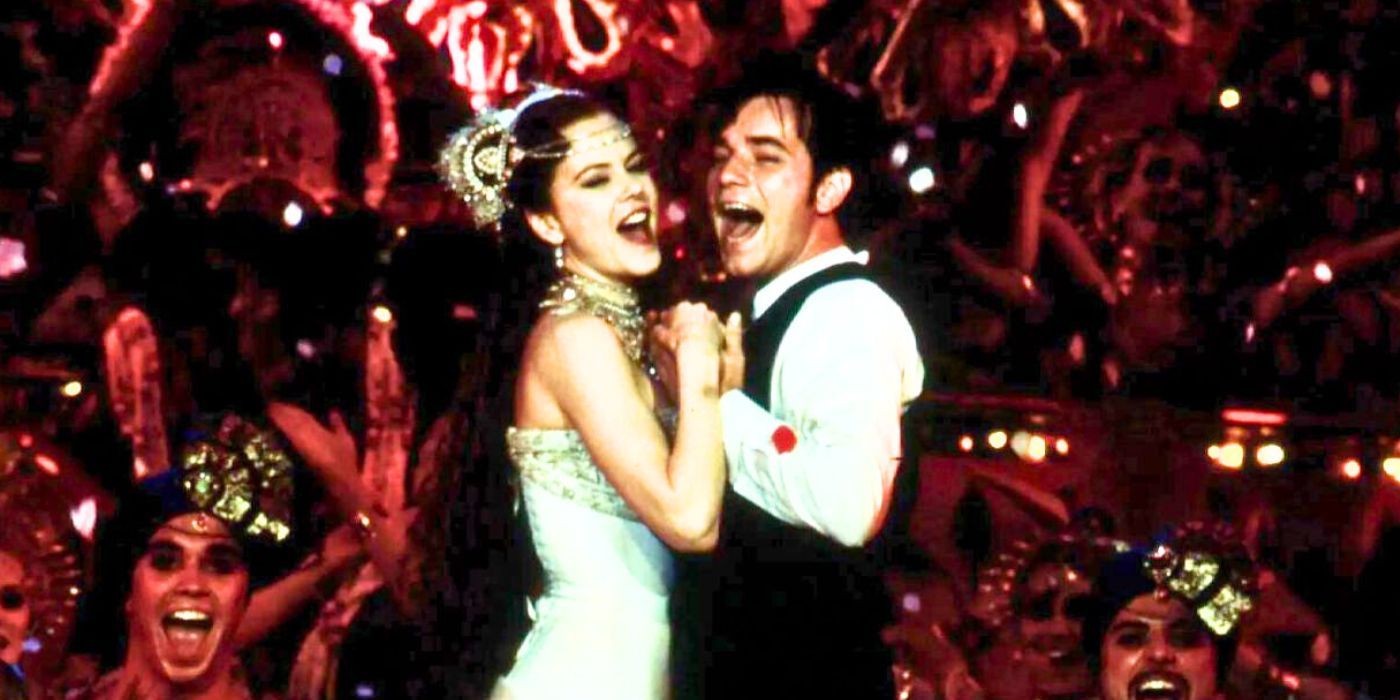
Related
Moulin Rouge! Soundtrack: Every Song & Where It Plays
Not just “Your Song,” Baz Luhrmann’s jukebox musical Moulin Rouge! has a tune for everybody in its vibrant, anachronistic, and multi-genre soundtrack.
Musicals had largely disappeared in the 1990s, and Moulin Rouge! helped revive the genre after years of dormancy. Nicole Kidman and Ewan McGregor lead the film, though they are joined by a roster of talented performers in supporting roles. Every detail is hyperstylized, and Moulin Rouge! is an intentionally disorienting whirlwind of sound and color.
2
West Side Story (1961)
Romeo & Juliet Reimagined For The 1960s
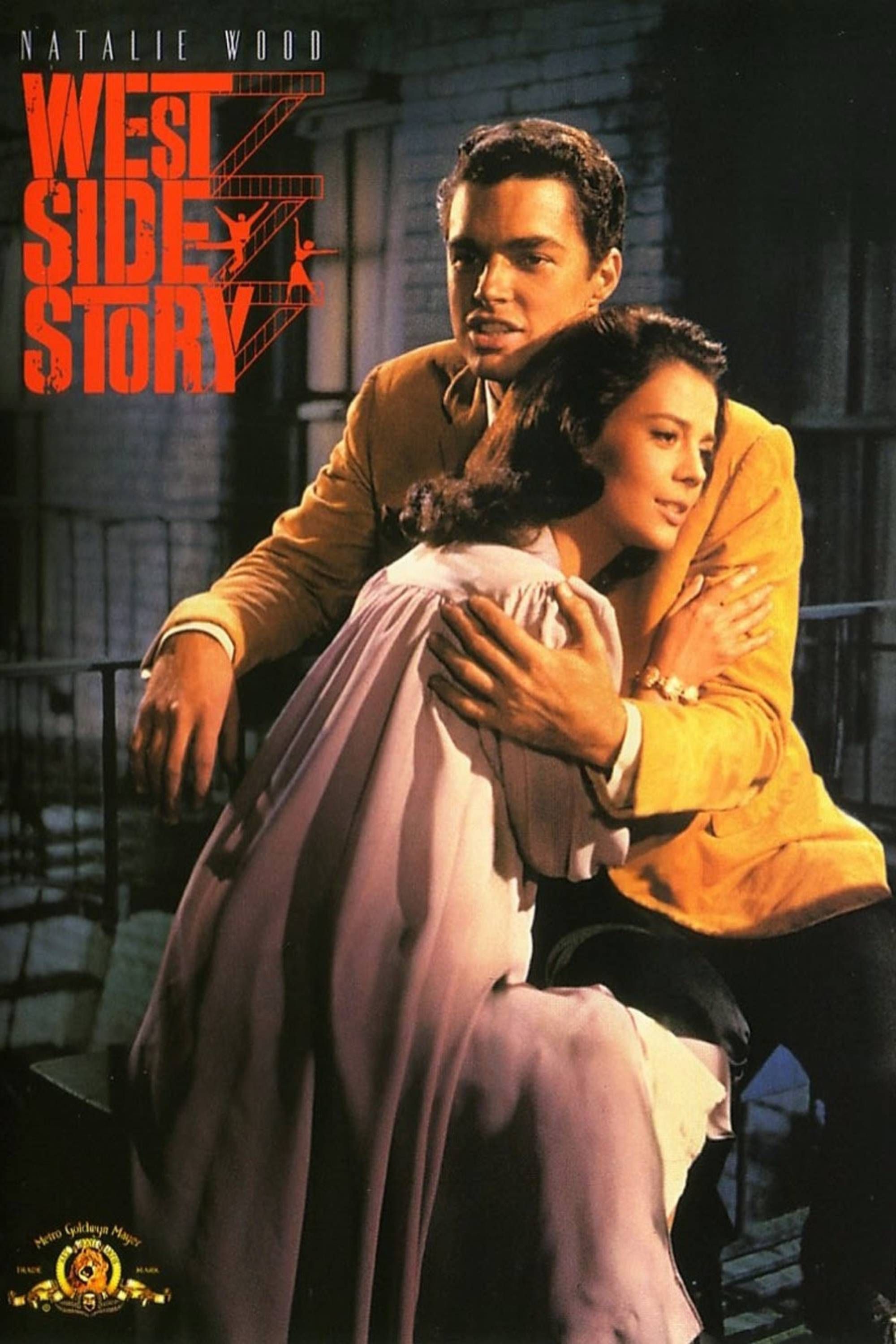
West Side Story
- Release Date
-
December 13, 1961
- Runtime
-
151 Minutes
- Director
-
Robert Wise, Jerome Robbins
The ’60s was the heyday for movie musicals, and West Side Story is one of the crowning achievements of the decade. The Bernstein and Sondheim stage show was quite a success, but the 1961 movie is perhaps how the story will be best remembered forever. The tale of star-crossed lovers from warring factions is timeless, and every song is unforgettable.
Dancing is an important part of West Side Story, and the movie brought the grandeur of the stage to the screen, but made everything feel bigger. The dreamy quality of the lighting services the story perfectly, and each musical number feels special in its own way. West Side Story isn’t just a great musical, it’s an important film too.
1
Singin’ In The Rain (1952)
One Of The Greatest Films Of All Time
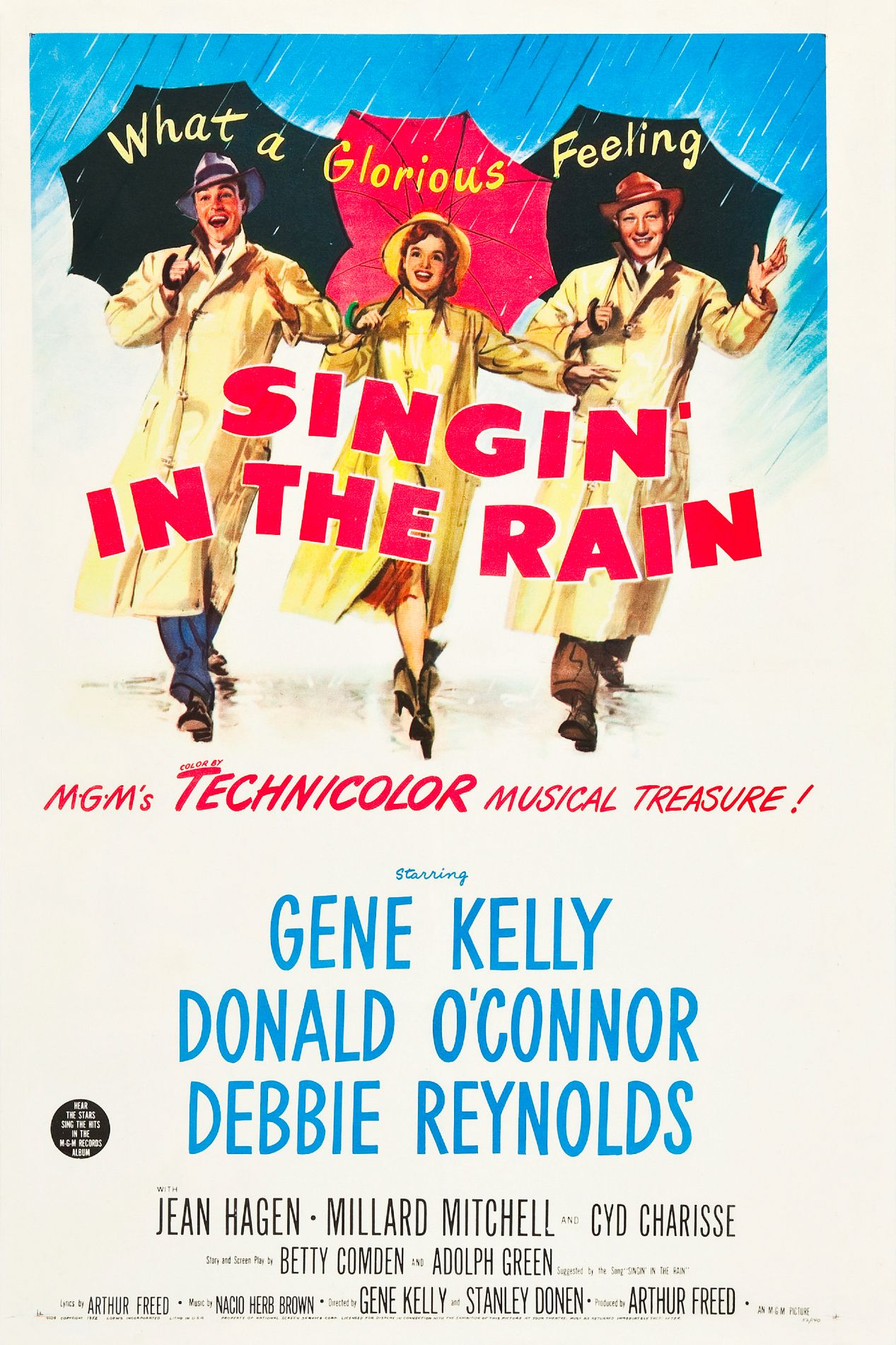
Singin’ in the Rain
- Release Date
-
April 11, 1952
- Runtime
-
103 Minutes
- Director
-
Stanley Donen, Gene Kelly
Often ranked among the greatest movies ever, Singin’ in the Rain is more than just a brilliant musical. Humorously exploring the birth of the sound era in Hollywood, the Gene Kelly vehicle is a key example of what makes film such a unique art form. The music, choreography, and direction are flawless, and its shine hasn’t faded.
Being an original musical that isn’t from an existing source, Singin’ in the Rain is perfectly suited for the big screen, and it’s an homage to an even earlier age of entertainment. It wouldn’t be a stretch to call it a perfect movie, and it is even less verbose to say that Singin’ in the Rain is an indispensable musical.
Source link



